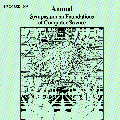We study the Densest Subgraph (DSG) problem under the additional constraint of differential privacy. DSG is a fundamental theoretical question which plays a central role in graph analytics, and so privacy is a natural requirement. All known private algorithms for Densest Subgraph lose constant multiplicative factors, despite the existence of non-private exact algorithms. We show that, perhaps surprisingly, this loss is not necessary: in both the classic differential privacy model and the LEDP model (local edge differential privacy, introduced recently by Dhulipala et al. [FOCS 2022]), we give $(\epsilon, \delta)$-differentially private algorithms with no multiplicative loss whatsoever. In other words, the loss is \emph{purely additive}. Moreover, our additive losses match or improve the best-known previous additive loss (in any version of differential privacy) when $1/\delta$ is polynomial in $n$, and are almost tight: in the centralized setting, our additive loss is $O(\log n /\epsilon)$ while there is a known lower bound of $\Omega(\sqrt{\log n / \epsilon})$. We also give a number of extensions. First, we show how to extend our techniques to both the node-weighted and the directed versions of the problem. Second, we give a separate algorithm with pure differential privacy (as opposed to approximate DP) but with worse approximation bounds. And third, we give a new algorithm for privately computing the optimal density which implies a separation between the structural problem of privately computing the densest subgraph and the numeric problem of privately computing the density of the densest subgraph.
翻译:暂无翻译




